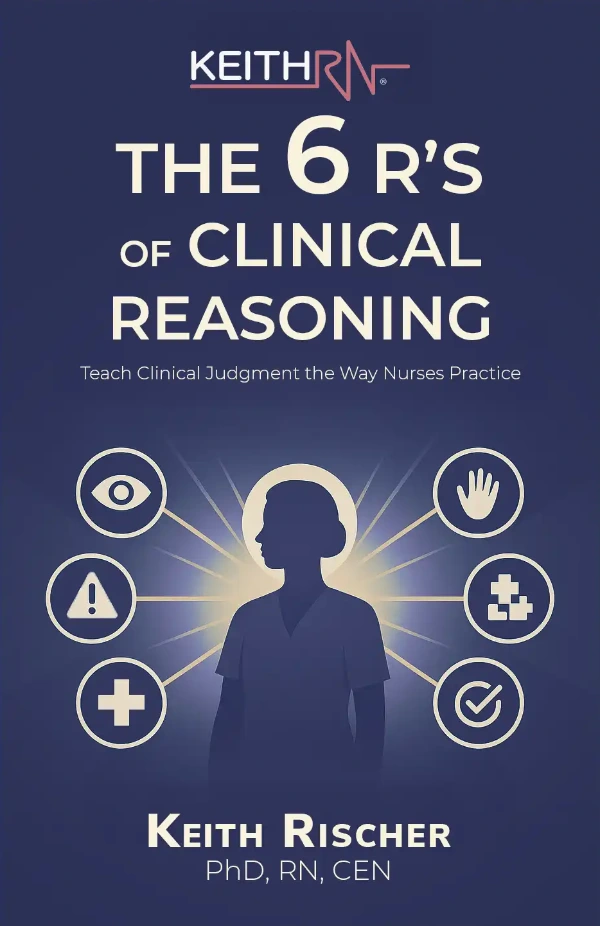The 6 R’s of Clinical Reasoning
An easy-to-remember, practice-informed teaching framework based on Tanner’s Clinical Judgment Model that helps students identify risks to prevent failure to rescue.

What are the 6 R's of clinical reasoning?

Meet Keith
After 25 years at the bedside in various settings, including the ED and ICU, Keith Rischer saw the gap firsthand: nursing education prioritized preparing students for the NCLEX, a minimal competency exam, but not for the rigors of real-world clinical practice.
That disconnect sparked a mission. Today, KeithRN equips nurse educators with evidence-based tools and teaching frameworks that go beyond NCLEX prep to develop the clinical judgment, professional identity, and compassionate care that safe nursing practice requires.
